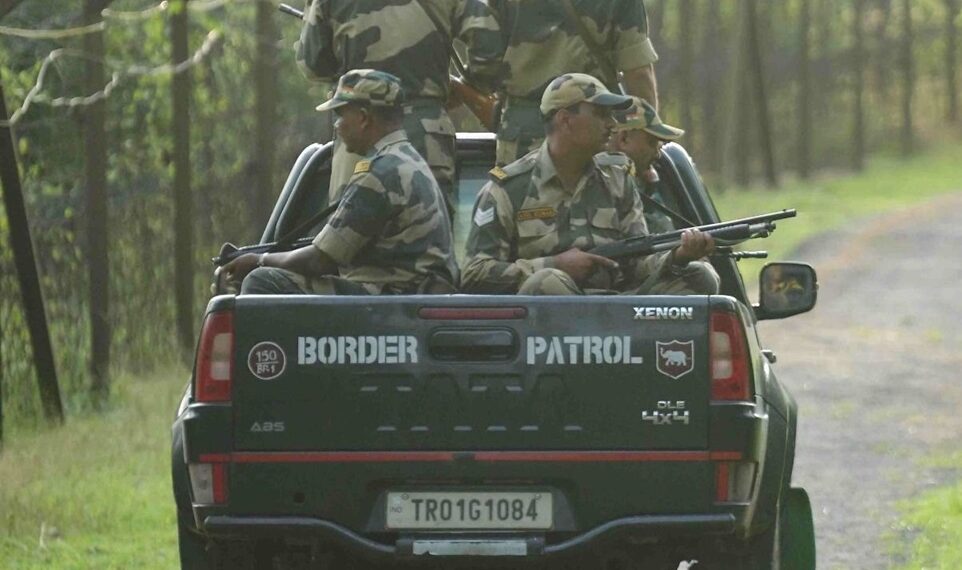A top Union Home Ministry official, who initially agreed to meet a delegation of officers of Bangladesh’s border guarding force at a specific time in North Block last week, subsequently cancelled the meeting without assigning any reason, Northeast News has learnt.
Union Home Secretary Govind Mohan had initially agreed to meet the visiting team of Border Guards Bangladesh officers led by Major General Akhtaruzzaman Siddiqui, at 11 am on February 19, a day before the guests depart for Dhaka.
But the meeting was suddenly cancelled and the matter was conveyed to the BGB officers who were in Delhi between February 16 and 20 to hold annual confabulations with the Border Security Force (BSF) on a host of critical issues that have been major irritants in ties between two border guarding forces.
Home Ministry officials were unwilling to say whether the BGB officers had evinced interest in the meeting or whether the BSF sought the meeting.
The cancellation of the meeting comes amid the worst phase in India-Bangladesh relations since the fall of the Sheikh Hasina regime which was replaced by an ‘interim’ authority headed by Nobel Peace laureate Mohammad Yunus who is backed by a section of university students and a host of fundamentalist Islamist forces, including the Hizbut Tehrir and the Jamaat-e-Islami.
Amid uncertainty in India-Bangladesh ties, government sources said, the BSF chief’s July meeting “may not materialise” if the political, security and social conditions in Bangladesh deteriorate.
While the BSF-BGB deliberations on border-related security and other associated issues were inconclusive, there was disagreement on how the two sides perceived the matter of single-row fencing and construction activities very close to the ‘zero line’.
Other issues such as transborder crime, border demarcation and land survey, river bank protection, activities of insurgents and “confidence-building measures” were discussed during the course of the BSF-BGB meetings.
The BGB team arrived in Delhi around the time India’s National Security Advisor Ajit Doval made a quiet visit to Kolkata where he met senior intelligence and law enforcement officials of West Bengal and the northeastern states.
Doval’s meetings in Kolkata assume “critical importance” about the emerging political and social conditions in Bangladesh where law and order has been severely affected as a consequence of the violence and unlawful activities of the Islamist groups and criminal elements.
It is an open secret that the police have shown little inclination to curb lawlessness.
More importantly, the Bangladesh Army, which wields magistracy power as a means to aid the civil authority, too has been wary of taking strong measures to check increasing lawlessness and political violence among different groups that threatens to turn the country towards instability if not chaos.
An immediate outcome of Doval’s meetings in Kolkata visit was the imposition of night curfew along the India-Bangladesh border on that frontier by Assam’s Cachar district authorities.
While the directive is aimed at preventing “potential law and order disturbances arising from the movement of extremist elements and unauthorised transportation of commodities and cattle across the border”, it could have a larger strategic intent and objective.
ALSO READ: Assam governor advocates for stronger university-industry ties
Government officials said that Indian security agencies have credible information that indicates “heightened activity” on the part of suspected terrorists released by Bangladeshi authorities from prisons since the Yunus regime took charge on August 8, 2024.
Several terrorists were freed from jails, including the Kashimpur prison near Dhaka, within two months of the Yunus regime taking charge.
Indian security agencies suspect that terrorist elements from Bangladesh might try to cross the border bordering West Bengal and other northeastern states in their bid to cause disturbances there.
“But there appears to be a more strong and compelling reason than the likely entry of Bangladeshi Islamist terrorists into India,” a security analyst said.















